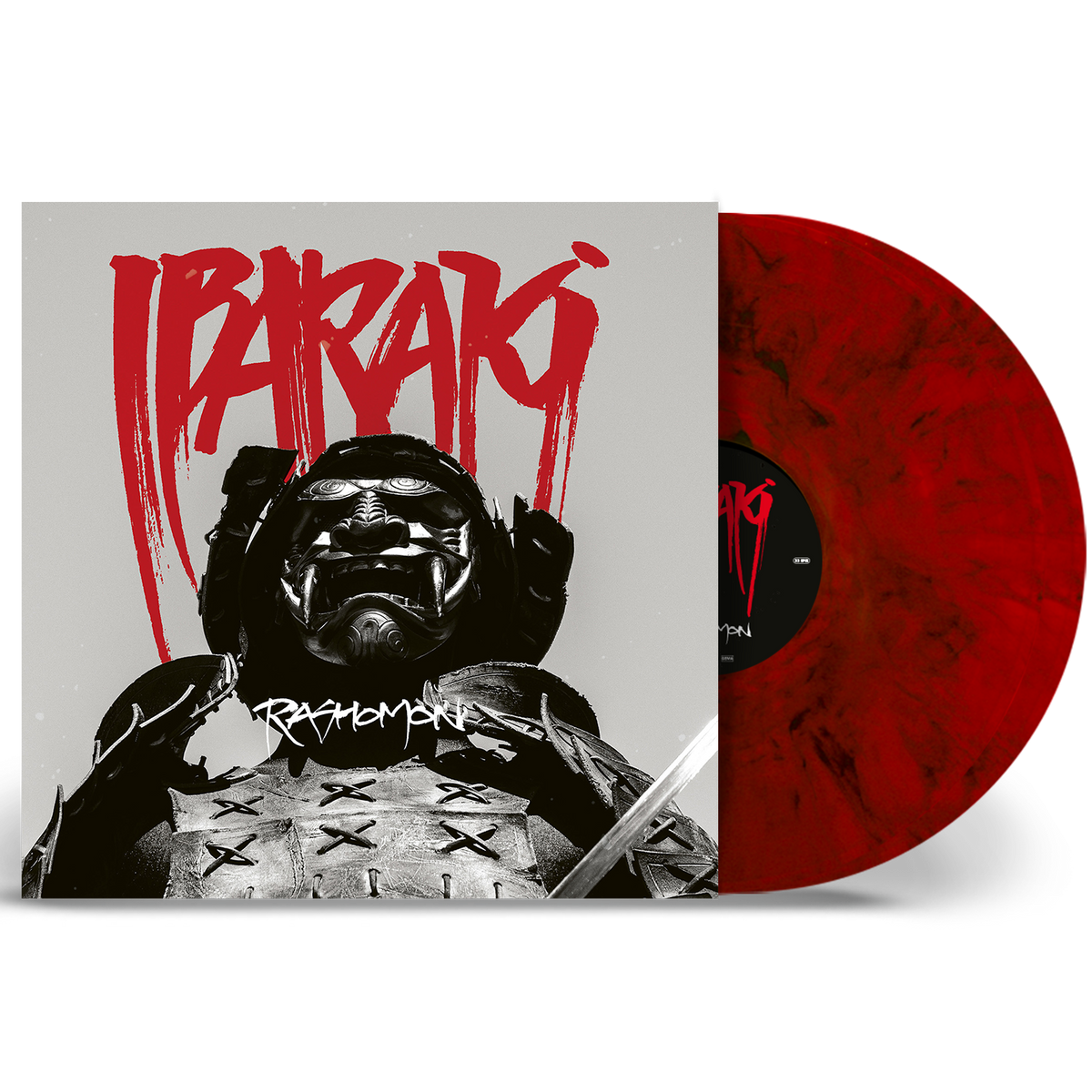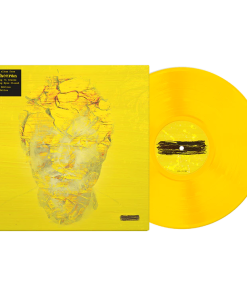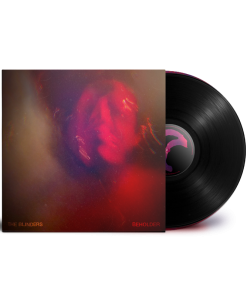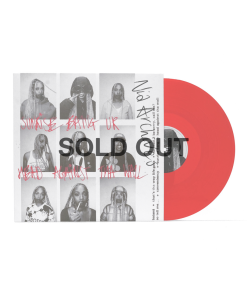Rashomon: Limited Edition Red/Black Marbled Vinyl 2LP Ibaraki
$ 28,99 $ 17,39
Say the name TRIVIUM and reverence follows. That’s because in the annals of modern metal there are few stories more illustrious or celebrated than the one that began with that group of impossibly young Floridian misfits dreaming of the lighted stage over 20 years ago. In the time since those heady days, their career has been burnished by the kind of triumphs wrought by the sweaty toil of relentless touring and the steady anvil-beat of landmark releases that have won them a legion of fans around the world. Just as TRIVIUM have tirelessly forged their careers, so too have those ceaseless hammer-blows shaped Matt Heafy who, with each passing year, has taken shape as an artist, songwriter and thrilling frontman on stage, and one of metal’s most compelling voices when he’s off.
Given the close intertwining of Matt and TRIVIUM’s stories, you’d have thought the two would be inseparable, but not so, because IBARAKI – the name for a terrifying Japanese demon taken from feudal legend – is more than a solo record. As he tells it, it’s the end-result of a journey to find his voice. It’s personal, it’s deep, and as he explains, its inspirations include everything from an adoration for the extremes of black metal, to the exuberant storytelling of Gerard Way, to the adventuresome worldliness of tragic bon viveur Anthony Bourdain. It’s a reflection of his multifaceted interests as well as a profound affirmation of his Japanese-American identity, and one that led him to confront one of his family’s most tragic moments. Like the artist behind it, there is much to the story of IBARAKI and it began with a timid email to one of black metal’s most revered and influential figures.
It was Matt’s exposure to Ihsahn’s solo work that would inspire the gradual craftsmanship that would eventually become IBARAKI. It was also the beginning of a friendship and creative collaboration that would eventually compel Ihsahn to take a leap of his own into a newfound role as producer on the project. While much of the material for IBARAKI was assembled over those months and years – as much a songwriting process as an exchange of ideas between friends – it wasn’t until the pandemic that the space was created and the idea could really flourish. “It was very loose,” says Ihsahn. “We just had rough demos for a very long time because we’re arguably pretty busy people, but suddenly everything was cancelled and we had time on our hands for the first time, so it was like, ‘OK, let’s do this.’ We never got to work in the same room; he’d track guitars and send them to me, I’d run them through my studio and send them back. It was a new way of working, but it was like he was there on the other side of the glass. Matt is a very, very positive energetic and passionate music fan – we have similar attitudes to music and open mindedness. We hit it off, and it’s been really rewarding to me. I’ve always been on the artist’s side, but Matt made it so easy for me because there’s no ego and he’s so open to new perspectives and he isn’t afraid of changing directions. He has such a wide range of musical influences. We talked about that and it was very obvious for me that he could extend his talents to a wider range. In all extreme genres there’s always a very small stereotypical framework of what you’re supposed to do.”
But IBARAKI was more than just an expression of Matt and Ihsahn’s deep creative resonance. He got by with a little help from his friends, too. While primarily written by Matt, Ihsahn engineered and produced and contributed some song structures, plus TRIVIUM drummer Alex Bent and bassist Paolo Gregoletto and guitarist Corey Beaulieu contributed to various tracks. Ihsahn’s wife Heidi even sampled some natural sounds from the forest near their home and his entire family and Gerard Way contributed guest vocals to the song “Ronin”. “We got Nergal doing guest vocals on ‘Akumu’, too, which was just amazing,” says Matt
.
As pivotal as Matt’s interactions with novice producer Ihsahn would be, it wasn’t just his perspective on music that was about to change. The shift that would imbue IBARAKI with its unique culturdentity – aside from its joyous musical eccentricities and creative sojourns which really have to be heard to be believed – but it’s the inspirational personal journey behind it that makes it a true standalone. That’s because just as Ihsahn encouraged Matt to break with the limiting musical conventions of the genre, he also motivated him to seek out new avenues for lyrical inspiration.
More than an album simply inspired by Japanese mythology and folklore, to Matt, IBARAKI is – like so many things from the land of the rising sun – an album that exists on two levels. The imaginary and the literal. The layers of meaning also abound, as do demons both real and imagined.So it wasn’t just the rich mythology and folklore of Japan that would give IBARAKI its unique aesthetics and influences – it would provide Matt with the catalyst to contemplate his own identity and to consider how recent tragedies stateside have highlighted the need for better representation in metal. The rise in anti-Asian violence and bigotry was something that Matt was keen to confront.
Fast Delivery and Professional Packaging
Our long-standing relationship with UPS FedEx DHL and other carriers around the world gives us the ability to provide various shipping options. Our warehouse personnel will pack all goods to our exacting requirements. Your goods will go through an extensive inspection and will be securely secured prior to being shipped. Every day we ship thousands of packages to clients from all over the world. This is a sign of our determination to be the largest online retailer in the world. There are distribution centers and warehouses in Europe and the USA.
Orders that contain more than 1 item are assigned processing periods in accordance with the item.
Prior to shipment, all purchased items will be thoroughly inspected. The majority of orders are shipped within 48 hrs. Delivery is expected to take between 3 and 7 days.
Returns
The stock is dynamic and we do not completely manage it because multiple parties are involved, which includes our factory and warehouse. The actual stock can fluctuate at any time. It's possible that the stock may run out after your order has been processed.
Our policy lasts for 30 days. Unfortunately, if thirty days have passed from the date you purchased the item, we will not be able to offer you a return or exchange.
The item should not be used, and it must be in the original packaging. The item should be in the original packaging.
Related products
Vinyl LP
Vinyl LP
Vinyl LP
Vinyl LP
Vinyl LP
Vinyl LP
Vinyl LP
Vinyl LP
Vinyl LP







































